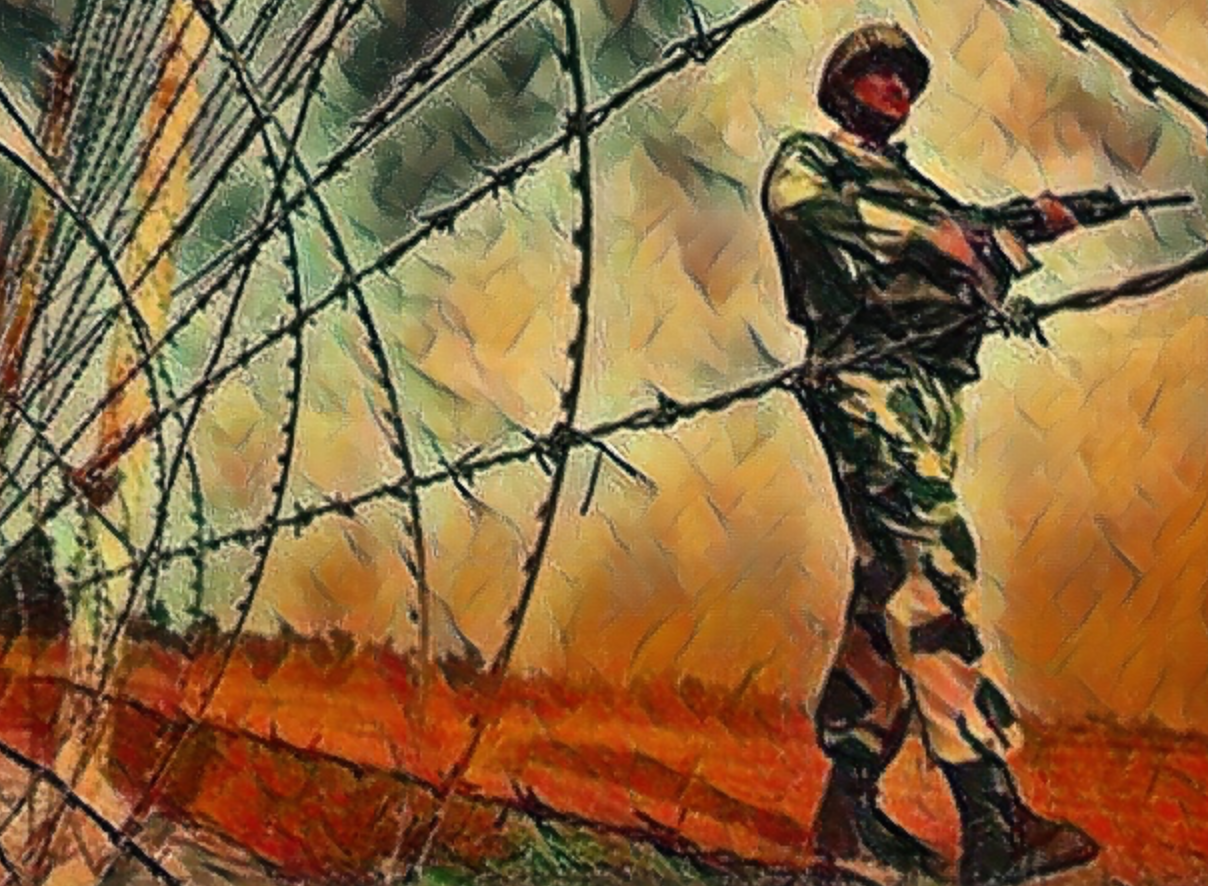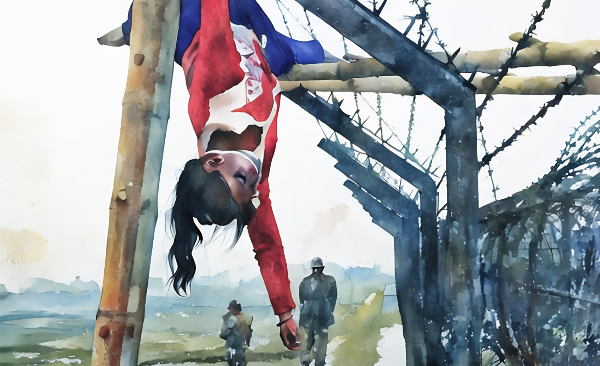India's border killings violate international law and demand global attention
-66f109f5084ed.png)
Let's take a hypothetical situation: imagine Serbia attacked Bosnia, but during the conflict, they deliberately killed many unarmed civilians, even attempting to conceal the bodies. They also abducted people from another country's border, resulting in the deaths of many children.
This is deeply disturbing, wouldn't you agree? These actions would undoubtedly constitute war crimes, and there would be serious consequences in the international community.
While our country is not currently at war, we must acknowledge that similar incidents, unfortunately, occur frequently. It's crucial to question what's happening at our borders and explore potential solutions to address these issues.
An op-ed by “The Diplomat” magazine labeling the Bangladesh-India border as the "world's most dangerous" is tragically unsurprising. Such levels of civilian killings at a border, in the absence of declared war, are unheard of elsewhere.
Muhammad Abdur Rabb's book on Bangladesh underscores the gravity of the situation: between 1990 and 1999, 206 ordinary people lost their lives at this border.
Human rights organizations report an even more horrifying escalation from 2000 to 2020: 1,236 deaths and 1,145 injuries caused by the BSF.
Furthermore, the Law and Mediation Center documents 70 deaths between 2021 and 2023. These figures, already shocking, likely represent only a fraction of the true human cost, given the underreporting of such incidents.

The continuation of atrocities
In a heartbreaking incident, 14-year-old Swarna Das was fatally shot by the Indian Border Security Force (BSF) in Kulaura, Moulvibazar recently.
According to a Daily Manabzamin report, despite the girl's desperate pleas for mercy, the BSF showed no compassion. Even our Hindu community, which holds strong ties with India, is not immune to their bullets.
Swarna's family members who witnessed the incident are bravely speaking out.
However, the Times of India, in a September 4th report, falsely claimed that Swarna was killed by the Border Guard Bangladesh (BGB).
This echoes the tragic case of Felani, where Indian courts' mockery of justice led to the absurd conclusion that no one was responsible for her death - her body simply happened to be hanging from the barbed wire. It is the duty of any conscious individual to remain vigilant and not fall prey to such Indian propaganda.
In April, a disturbing video surfaced on Facebook showing the BSF brazenly entering Bangladeshi territory in Lalmonirhat and firing at two fleeing shepherds (Jugantor, April 9, 2024).
Their blatant disregard for international boundaries raises alarming questions about their intentions.
Similarly, former student leader Ishaq Ali Khan Panna tragically lost his life, allegedly due to BSF gunfire while attempting to cross into India (Inquilab, August 25, 2024).
It's a stark reminder that even a lifetime of goodwill towards India can't shield one from their bullets, despite the BSF's attempts to spin a different narrative.

Legal courses are not followed
India's actions at the border, including the deaths of many children, breach multiple provisions of international law and may constitute war crimes or human rights violations.
In contrast, even on borders with Pakistan or China—where tensions frequently arise—the average civilian death toll is much lower, at just 5 or 6 per year.
India and Bangladesh have established two bilateral protocols to manage their border: the "Joint India-Bangladesh Guidelines for Border Authorities" (1975) and the "India-Bangladesh Coordinated Border Management Plan" (2011).
These protocols specify procedures for addressing border incidents. If someone attempts to illegally cross the border or commits a crime, border security forces are allowed to take necessary self-defense measures, although the use of firearms is discouraged.
In cases of cattle smuggling, the protocols require sharing information and taking legal steps to recover the cattle.
Additionally, both Indian and Bangladeshi legal frameworks explicitly prohibit the killing of unarmed individuals.
There are no laws that permit the punishment of smugglers or the use of lethal force as arbitrary punishment. Nevertheless, India continues this practice, citing self-defense or, as seen in Swarna's case, outright denying accountability.
The tragic case of Felani serves as a stark reminder of this ongoing pattern.
A Human Rights Watch report titled "Trigger Happy" highlights this troubling reality, revealing that many victims of border killings are often unarmed or only carrying basic tools like knives, sticks, or machetes.
Even within India, human rights organizations denounce these weak justifications for such killings.

What can be done?
So, the question arises: are we truly powerless in this situation? Not entirely.
There are several potential actions we can take. First is diplomatic engagement. Last year, on June 22, the prime ministers of both countries pledged to reduce border killings to zero.
This commitment was also reaffirmed during the 54th India-Bangladesh Border Conference. Unfortunately, tangible action has yet to materialize, and the death toll continues to rise.
Another option is to seek redress through international law. The Rome Statute of the International Criminal Court (ICC) defines crimes against humanity, including murder, when carried out as part of a widespread or systematic attack on civilians.
The UN Basic Principles on the Use of Force and Firearms by Law Enforcement Officials (1990) specify that firearms should only be used in self-defense or to protect others from imminent threats of death or serious injury, and only as a last resort.
The Geneva Conventions also prohibit violence against individuals not actively involved in hostilities, even in non-international armed conflicts.
The previous submissive foreign policy of the Awami League government towards India has also played a role in this issue.
In an effort to reduce border violence, Bangladesh has agreed to nearly all of India’s demands, such as constructing barbed wire fencing (a measure not taken on its borders with Pakistan or China) and removing mobile towers.
Yet, these measures have not produced the desired outcomes; Bangladeshi citizens near the border still rely on Indian roaming services due to the absence of a local network.
Now, pushed to a breaking point, the interim Bangladeshi government led by Dr. Muhammad Yunus has recently issued a strong letter to India, indicating a potential shift in its approach.
This is commendable as it demonstrates that Bangladesh will no longer tolerate unaccountable deaths. Ultimately, lasting peace at the border will require India to reassess its foreign policy and actively pursue peaceful coexistence.
—-
Subail Bin Alam is a columnist focusing on sustainable development issues.

